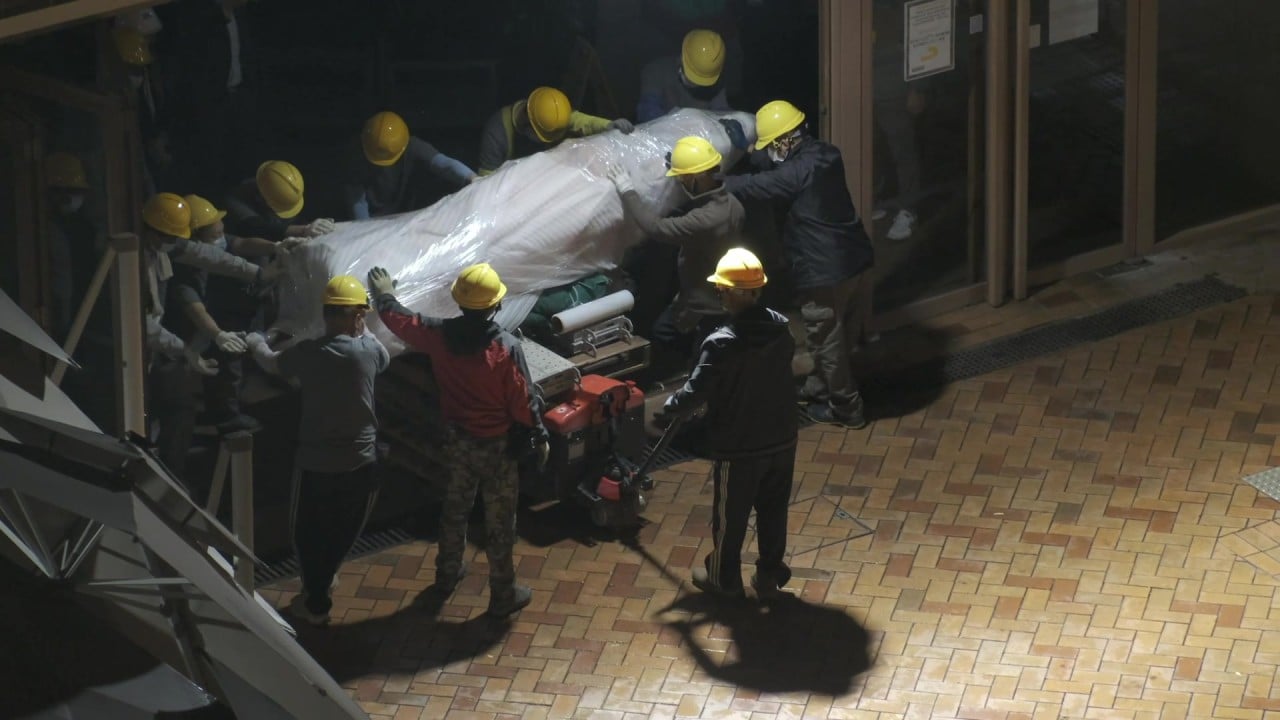University of Hong Kong removes Pillar of Shame sculpture marking Tiananmen Square crackdown in middle of night
- While an HKU Council statement points only to unspecified ‘legal risks’, source says colonial-era sedition law was cited during meeting that lasted over an hour
- Danish artist Jens Galschiøt, the pillar’s creator, blasts its dismantling as ‘a disgrace’, says university refused to communicate with him despite offers to claim it

The HKU Council, a partially government-appointed body, confirmed the removal in a morning statement, saying the decision to take down the eight-metre Pillar of Shame was made in light of “external legal advice and risk assessment” after a meeting on Wednesday.
“Latest legal advice given to the university cautioned that the continued display of the statue would pose legal risks … based on the Crimes Ordinance enacted under the Hong Kong colonial government,” the statement said.
The council also said it was “very concerned about the potential safety issues resulting from the fragile statue” and noted that no official approval had ever been granted for its display. It had stood on campus since June 1997.
While the statement offered no specifics as to the potential legal risks, a source familiar with the council’s discussion said Section 10 of the Crimes Ordinance had been cited as a basis for removing the statue.
The section targets acts with a seditious intention, including publications and displays of any seditious material, deemed a crime punishable by up to two years in prison and a HK$5,000 (US$641) fine for a first offence.
According to the source, the university had sought legal advice from local law firm P.C. Woo & Co after Chicago-based Mayer Brown declined to represent HKU on the matter amid criticism of HKU’s initial decision in October. The Post has approached the firm for comment.
